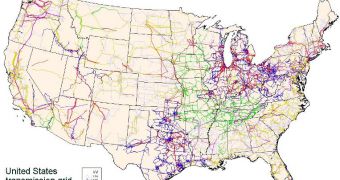Representatives from four cities in Japan are pledging to reduce the electricity consumption and carbon footprint they leave behind, by employing technologies that go well beyond what are countries have planned at this point.
These four urban centers will test to see if increase reliance on renewable energies of all sorts is a feasible possibility, and if fossil fuels can indeed be cast aside as the main source of energy for today's society.
Coordinating energy use for electricity, heating, and transportation will be one of the primary means of reducing the amount of greenhouse gases the cities currently emit, the official said.
The recently-proposed plans would see GHG emissions cut by no less than 40 percent within the next 20 years. This goes well beyond the scope of smart power grids promoted in the United States.
The Japanese officials said at a recent smart-grid conference in Gaithersburg, Maryland, that they want to create a “smart community,” that will handle not only electricity management, but also heating and transportation.
The announcement was made by Hironori Nakanishi, who is a director at the Ministry of Economy, Trade, and Industry in Japan, Technology Review reports.
The Japanese Prime Minister made a pledge in 2009 to reduce his country's GHG emissions by about 25 percent until 2020, and this project is part of those efforts.
The projects are estimated to cost around $1 billion over the next five years, and they are being developed with support from industry giants such as Toyota, Nissan, Nippon Steel, and Panasonic.
Nakanishi said at the meeting that sections of the plans call for the installation of capabilities totaling about 28 gigawatts of solar power, which is the rough equivalent of 28 nuclear reactors.
Experts in Japan believe that managing heat is key to reducing electricity consumption, and carbon footprints, respectively.
“More than half of energy is used as heat, so the integration of heat and electricity is quite important,” Nakahishi explained at the conference.
Integrating automobiles into the new “smart community” may also be a way of boosting its efficiency. Experts say that the vehicles could be used as power storage devices too.

 14 DAY TRIAL //
14 DAY TRIAL //